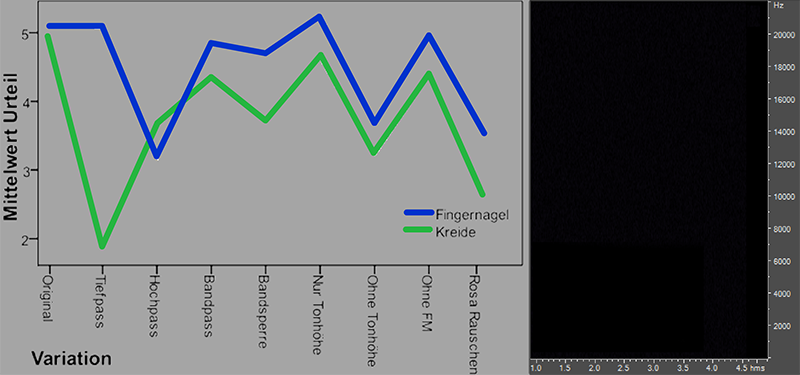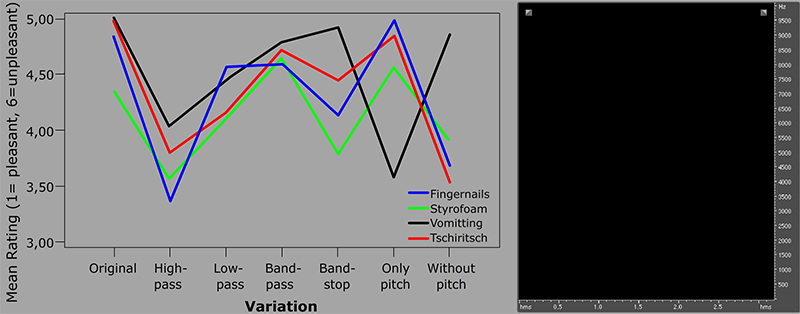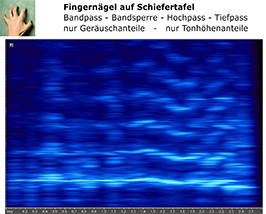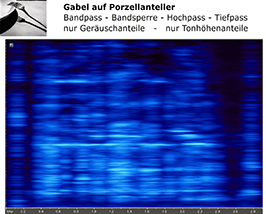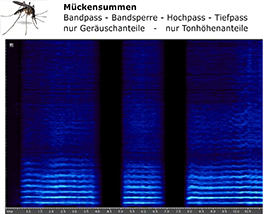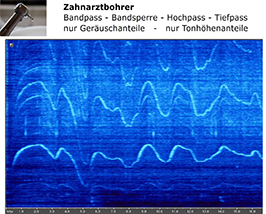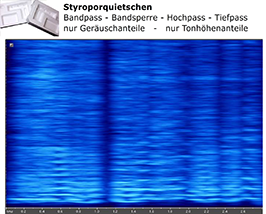Studies concerning the pleasantness/unpleasantness of soundsChristoph
Reuter1, Michael
Oehler2, Jörg
Mühlhans3 Blackboard scratching, a scraping fork on porcelain, brake squealing and similar squealing noises are perceived mostly as particularly unpleasant because, in addition to a recognizable fundamental pitch in the spectrum, they have strong energy components in the 2000-4000 Hz range. The human auditory system is particularly sensitive in this range, since this is where the self-resonance of the outer ear canal lies. After removing the fundamental pitch and/or the range between 2000-4000 Hz from the spectrum, the unpleasant sounds are already judged to be much more pleasant. Listen here to the examples of the 2011 study in which listeners rated the unpleasantness of blackboard scratching and chalk noises (Y-axis, the higher the value, the more unpleasant) spectrally manipulated in different ways (X-axis).
Listen here to the examples of the extended 2012 study in which listeners rated the unpleasantness of blackboard scratching, styrofoam, vomit, and squeaky instrumental sounds (Y-axis, the higher the value, the more unpleasant) spectrally manipulated in various ways (X-axis).
As soon as the pitch information and/or - via bandstop filtering - the frequency range between 2000 and 4000 Hz is removed from the spectrum, the sounds are perceived as less unpleasant.
Literature and audio stimuli:
Other sound samples that have been rated as unpleasant. They immediately become more pleasant as soon as the pitch information and/or the frequency range between 2000 and 4000 Hz are removed:
|
